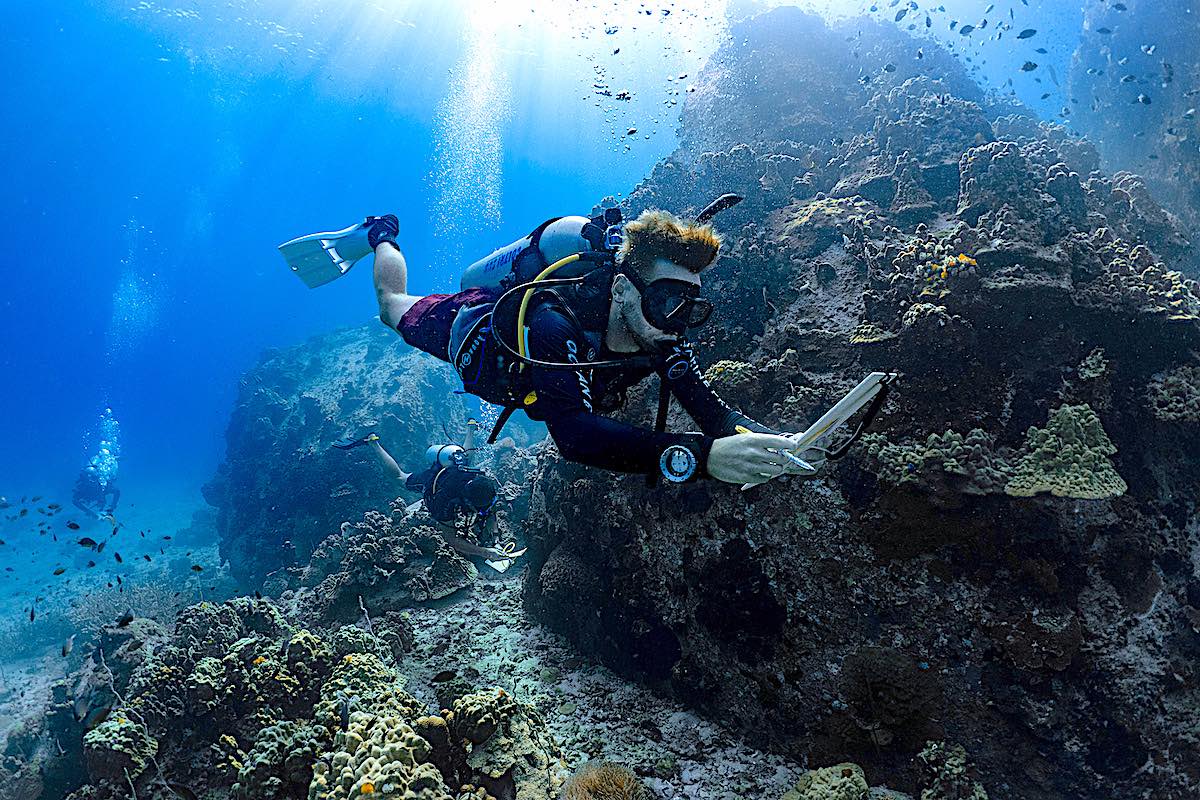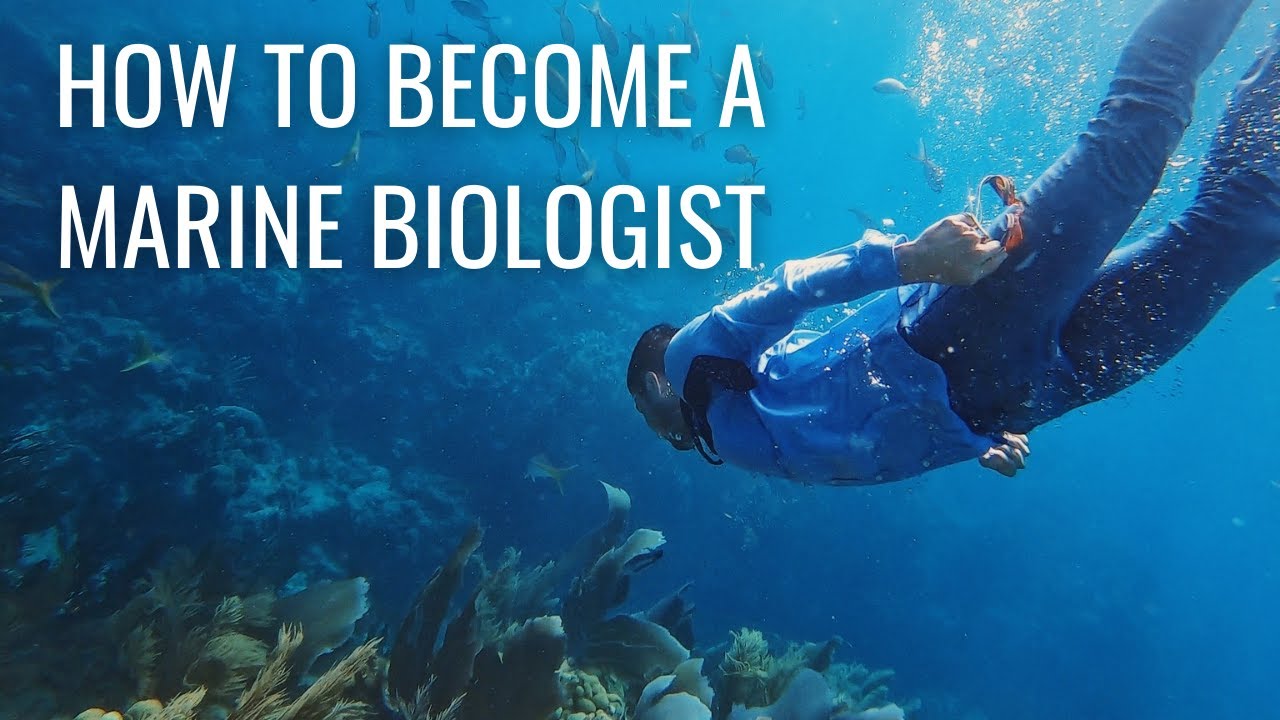Understanding how to become a marine biologist begins with earning a bachelor’s degree in marine biology or a related field, emphasising ecology and environmental science. Gain practical experience through internships and volunteering in marine research or conservation efforts. Obtain scuba diving certification for effective fieldwork, and consider pursuing a master’s or PhD to specialize and improve job prospects in this dynamic field.
What Are the Main Types of Marine Biologists?
Marine biologists, for instance, research ocean life, its ecosystems, and how human practices influence marine environments. Research in this field includes but is not limited to, field investigations of animals and plants living in the sea or ocean, the ecologies associated with those environments, and conservation efforts to protect these marine creatures from the threat of extinction. The role of a marine biologist might be considered an abstract career option, as it is diverse and open to students with a genuine passion for any branch of ocean life. Below are details and types of marine biologists::
- Marine Ecologist: Marine Ecologists are biologists who study marine ecosystems, focusing on the organisation of living organisms into functional units within their environment and the interactions between these organisms and their surroundings. They often specialise in specific habitats, such as coral reefs, mangroves, and deep seas.
- Marine Conservationists: Marine Conservationists actively protect marine species and habitats, particularly endangered ones. They work to counter threats such as pollution, climate change, and overfishing, and may lobby for political and legal changes to safeguard marine life.
- Marine Mammalogists: Marine Mammalogists study marine mammals, including whales, dolphins, porpoises, seals, sea lions, and walruses. They delve into their behaviour and genetics and examine how environmental changes affect these species.
- Marine Microbiologists: Marine Microbiologists focus on microorganisms living in the sea, such as bacteria, viruses, and plankton. Their research may explore how these tiny organisms influence larger environments and support marine health.
- Fisheries Biologists: Fisheries Biologists manage and conserve fish populations, concentrating on sustainable fishing practices, monitoring exploitable stocks, and managing the life histories of important commercial species.
- Marine Toxicologists: Marine Toxicologists investigate the toxic contaminants that affect marine life. In cases of oil spills, plastic waste, or chemical dumping, these scientists study how toxins impact sea creatures and how we can mitigate damage to marine ecosystems.
- Marine Botanists: Marine Botanists study marine plants, seaweeds, and algae, examining their roles in marine ecosystems, their reproduction, and the potential products—such as food, biofuels, and medicines—that can be derived from harnessing the power and survival strategies of these plants.
What Does a Marine Biologist Do?
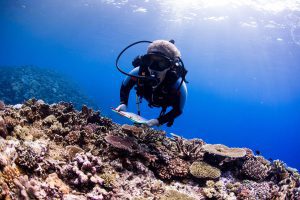
Marine biologists study the marine environment and the organisms that inhabit it. They collect data and study these organisms to learn about their behaviour and life cycles. Their work may include field research, laboratory analysis, or collecting and interpreting data. They also help to protect and preserve marine life while contributing to a broader scientific understanding of the ocean. Here’s how the responsibilities of marine biologists break down:
- Field Research and Sample Collection: Marine biologists survey marine life, water, and sediment in the field, using various methods to collect representative samples. These methods can range from scuba diving and snorkelling to deploying specialised and sophisticated equipment for underwater exploration.
- Laboratory Analysis: Specimens collected from the field are examined in the laboratory to study their structure, biochemistry, behaviour, or genetic characteristics. For instance, marine biologists may examine marine organisms under a microscope and analyse their DNA or chemical composition.
- Marine Species and Ecosystems: Marine biologists study the ways of life, life histories, and feeding habits of marine organisms, from the smallest plankton to the largest whales. They also investigate how marine species communicate and interact with one another and their environment, as well as how species respond and adapt to various biological, chemical, and physical changes.
- Tracking Environmental Changes: Marine biologists monitor how marine ecosystems are influenced and potentially damaged by human activities, such as pollution, overfishing, and climate change. Change is a constant factor in marine biology, and an important aspect of their work is to analyse ongoing and natural changes in the marine environment. This research informs strategies and policies for preserving marine habitats.
- Data Collection and Analysis: Marine biologists gather and utilise data in the field to draw conclusions about marine ecosystems. They may also write scientific reports, research papers, and articles to communicate their findings to academic peers, policymakers, and the general public.
- Conservation Efforts: Many marine biologists work in conservation, developing strategies to protect endangered species, restore habitats, and promote sustainable practices. This can involve advocacy work, public education, and advising on environmental policies.
- Teaching and Public Engagement: Marine biologists may also teach, whether to schoolchildren about marine science or to communities about marine conservation through outreach programmes, TV documentaries, or other educational resources.
Average Marine Biologist Salary

The salary of a marine biologist in the UK varies significantly and depends on their level of education and experience. Additionally, salaries are generally higher for marine biologists in specific sectors. However, the salary tends to be lower for those employed on a part-time basis. The chart below provides an overview of the salaries of UK marine biologists across three different sectors.
Overall, marine biologists in the research sector receive the highest salaries in the UK, while marine biology graduates earn the lowest. Conversely, marine biologists in the conservation sector receive the highest salary among all categories.
The salary of a marine biologist in the research sector starts at £25,000, steadily increases until it peaks at £35,000, and then begins to decline. In the conservation and education sectors, starting salaries are also £25,000, gradually increasing until they peak at £38,000. The salary curve for marine biology graduates increases steeply until it reaches £25,000, after which it starts to decline.
- Entry-Level Marine Biologist: First-time, entry-level marine biologists can typically expect salaries between £18,000 and £25,000 per year. Positions at this career stage often involve working as a research assistant, field technician, or laboratory assistant.
- Experience Level: For more advanced roles, marine biologists can earn between £25,000 and £35,000 per year. These positions often involve greater responsibilities, such as project management, data analysis, and policy advising.
- High-Level Roles: Senior marine biologists or highly specialist roles, such as head biologists or researchers in conservation programmes or policy development, typically pay a minimum of £35,000 to £50,000 or more. Marine biology university lecturers and research scientists also fall within this salary range.
Essential Skills of a Marine Biologist
It takes a certain type of person to become a successful marine biologist, and a prospective marine biologist must possess a range of skills required for a Marine Biologist career.
A deep knowledge of the subject is vital in any profession, and marine biologists are no exception. Carrying out experiments and other laboratory activities is a crucial ability required during training and on the job. Marine biologists also have a number of administrative and financial responsibilities that necessitate sound organisational and financial skills. In addition, there are several personal qualities that marine biologists should possess. Overall, it takes a very special person to become a marine biologist.
- Scientific and Analytical Skills: Marine biologists need a solid grasp of biological, ecological, and chemical principles. They should be skilled in designing experiments, conducting research, and analysing data. Comfort with statistical methods is essential for drawing logical conclusions. Staying current with scientific literature enhances their research effectiveness.
- Scuba Diving and Fieldwork Skills: Field research often requires marine biologists to work in challenging environments, necessitating proficient scuba diving skills. Physical fitness is vital for conducting underwater surveys and sample collection. Familiarity with field equipment, like underwater cameras and sampling kits, enhances data accuracy. Adaptability to various marine conditions is crucial for successful research.
- Technical and Laboratory Skills: Proficiency in laboratory techniques for sampling and analysing water, soil, and biological materials is essential. This includes molecular biology skills for genetic analysis and chemical assays for environmental quality. Familiarity with laboratory equipment ensures reliable results. Knowledge of data analysis software aids in interpreting complex datasets.
- Communication Skills: Effective communication is vital for conveying research findings to diverse audiences. Marine biologists must write clear scientific reports and deliver engaging presentations. Outreach activities help foster public awareness and support for conservation. Simplifying complex concepts for non-scientists is crucial for effective engagement.
- Critical Thinking and Problem-Solving: Strong critical thinking skills are necessary for evaluating information and solving complex research problems. Marine biologists must adapt their methodologies to unexpected challenges in the field. They should assess the implications of their findings for conservation and policy. Creative thinking is essential for innovative solutions to marine ecosystem challenges.
- Teamwork and Collaboration: Marine biologists often work in multidisciplinary teams, requiring strong teamwork skills. They must navigate diverse perspectives and integrate various expertise effectively. Collaborative projects involve sharing resources and co-authoring publications. Building mutual respect and effective communication is key to success.
- Adaptability and Patience: Fieldwork for marine researchers can be extremely unpredictable. Unfavourable weather conditions, uncooperative animals, and mechanical issues often thwart attempts to collect data. As such, marine biologists must be flexible in their approaches and patient, sometimes waiting months or even years for research projects to bear fruit.
Marine Biologist Tips
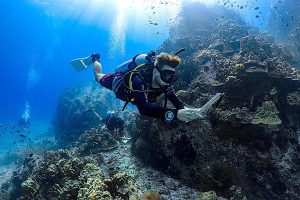
Here are some tips for aspiring marine biologists to build a successful career:
Anyone wanting to work in this field must obtain an appropriate degree. An obvious place to start would be a degree in marine biology. Other relevant degrees include marine science, zoology, ecology, or a similar course. Some universities specialise in studies related to the seas, oceans, and allied disciplines. These courses often focus on core themes of oceanography, marine ecology, and conservation.
- Volunteer and Intern to Gain Experience: Practical experience is crucial in marine biology. Volunteer with conservation organisations or join student programmes at research institutes. Internships at aquariums and marine labs enhance your skills and understanding. These experiences also help you build valuable professional connections.
- Become Scuba Certified: Scuba certification is often essential for underwater fieldwork in marine biology. Obtaining a PADI certification equips you with the skills to conduct research safely. It opens up opportunities to explore diverse marine habitats. This qualification is a valuable asset in the job market.
- Build Research Skills Early: Engaging in research projects during your studies is vital for developing scientific skills. Participate in university-led expeditions or thesis projects to learn methodologies and data analysis. Early involvement fosters critical thinking and problem-solving abilities. Collaborating with experienced researchers can also provide mentorship.
- Networking: Joining associations such as the CMI, ASM FC, or MBAA, and attending conferences and workshops, can be excellent ways to make connections. Although networking is vital for many professions, it is particularly crucial for marine biologists wishing to collaborate with others who share similar research interests or wish to engage in citizen science programmes.
- Consider Specialisation and Postgraduate Studies: Pursuing a master’s or PhD in a specific area enhances your expertise and job prospects. Specialisation allows you to delve deeper into fields like marine conservation or marine mammals. Postgraduate research can contribute significantly to the scientific community. Specialised qualifications help you stand out in the job market.
- Stay Up to Date: Marine biology is an ever-evolving field, so staying informed is essential. Subscribe to journals, follow research institutions, and engage in online forums. Keeping up with the latest research and policy changes enriches your understanding. Active engagement prepares you to contribute meaningfully to the field.
Marine Biologist Requirements
To pursue a career as a marine biologist in the UK, certain educational routes and experiences are essential. Here’s what you need:
- Education: A bachelor’s degree in marine biology, biology, oceanography, or a related field is essential. Students should cover marine ecosystems and organism interactions, alongside courses in ecology and environmental science. Practical laboratory and fieldwork experiences are crucial for developing hands-on skills. This foundational education prepares graduates for entry-level roles in marine biology.
- Postgraduate Studies: Many marine biologists pursue a master’s or PhD to specialise in areas like marine conservation or fisheries science. This advanced education enhances job prospects and allows for independent research contributions. Postgraduate studies often involve rigorous research projects and publications. Such qualifications are typically required for competitive roles in research and academia.
- Scuba Diving Certification: For roles involving underwater work, a scuba diving certification is often necessary. This ensures you possess the skills to dive safely in various marine environments. Advanced qualifications, such as scientific diving, may be required for specific research tasks. Certification includes training in underwater research techniques and safety protocols.
- Field Experience: Hands-on experience in marine environments is vital for aspiring marine biologists. Volunteering, internships, and field courses enhance practical skills and provide real-world application of theoretical knowledge. Engaging in fieldwork helps develop research methodologies and species identification. Networking with professionals during these experiences can lead to future job opportunities.
- Technical and Analytical Skills:
- Proficiency in using techniques and instrumentation in the laboratory.
- Ability to analyse and interpret spatial and temporal data through visualisation and mapping (familiarity with ArcGIS, QGIS, R, and related software is advantageous).
- Skills in modelling complex biogeochemical processes, ecological dynamics, and ocean mixing.
- Programming skills.
These skills can be acquired during your studies and further developed through training and continuing professional development.
How to Become a Marine Biologist
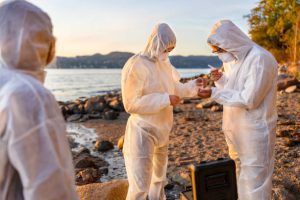
Here’s a step-by-step guide to becoming a marine biologist in the UK:
- Earn a Bachelor’s Degree: Start by earning a degree in marine biology, biology, oceanography, or a related subject. Take classes in ecology, environmental science, and marine conservation, and sign up for field trips and lab work to gain practical experience.
- Gain Experience Through Volunteering and Interning: Look for internships, volunteering opportunities, or summer jobs with marine research institutes, aquariums, conservation organisations, or universities. Relevant experience enhances your CV and helps build skills in field techniques, data collection, and lab procedures early on.
- Obtain Your Scuba Diving Certification: If your goal is to conduct underwater research, getting scuba diving certified is crucial. Start with a basic PADI certification and consider advancing to a scientific diving certification, which will prepare you for field research activities.
- Pursue a Postgraduate Degree (Optional but Advantageous): If you want to specialise or are planning a career in research or teaching, consider pursuing a master’s degree or PhD. This allows you to specialise in areas such as marine ecology, conservation, oceanography, or marine genetics.
- Develop Pathways to Exciting Dissertation Topics: Deepen your knowledge of key laboratory techniques, data analysis software, and research methods relevant to your chosen field. Familiarise yourself with tools such as GIS (Geographical Information Systems), statistical packages, and scientific diving techniques.
- Join a Professional Society and Attend Meetings: As an early-career scientist, it’s beneficial to build a network in the field. Join professional associations such as the Marine Biological Association (MBA) and attend annual conferences, workshops, and symposiums to connect with other researchers, conservationists, and industry professionals.
- Apply for Jobs in Marine Biology: Once you have the relevant qualifications and experience, start applying for positions in marine biology. Opportunities may include research assistant roles at research institutes and universities, research technician positions with conservation NGOs, or roles as a marine technician for environmental consultancies. Tailor your CV to highlight your skills in fieldwork, research, lab techniques, and any marine environments you have worked in.
- Engage in Continued Professional Development: Marine biology is a rapidly evolving field, so it’s important to keep learning. Stay updated on the latest research, conservation practices, and protection policies. Engage in continuing professional development (CPD) through courses, seminars, and fieldwork to enhance your knowledge and skills.
Get Qualified as a Marine Biologist
Basics of Marine Biology Online, Essential Marine Biology Principles, Marine Biology Certification, Diploma in Marine Biology Studies
Frequently Asked Questions
Why Should You Become a Marine Biologist?
There are few jobs that allow you to study ocean life and enhance the sustainable conservation of marine ecosystems. This role is perfect for those passionate about the environment, oceanography, science, and discovery. As a marine biologist, you can contribute to conservation efforts in the marine environment, work in a fast-paced and dynamic setting, and engage with one of the fastest-developing areas of modern research.
Is Being a Marine Biologist a Good Career Choice for You?
If you are passionate about marine life, enjoy research and fieldwork, and want to make a positive impact on the environment, then a career as a marine biologist could be a great fit. The field requires patience, resilience, and adaptability, as it often involves working in varied environments and sometimes challenging conditions. A marine biologist’s work can be physically demanding but is highly rewarding for those interested in understanding and protecting our oceans.
Marine Biologist Salaries
Salaries for marine biologists in the UK range from £18,000 to £50,000 and beyond, depending on specific experience, qualifications, and the nature of the post. The starting salary for standard positions is generally in the £18,000-£25,000 range. Experienced biologists in senior research and specialist roles can earn up to £50,000 or more, depending on the requirements of the position.
Which Qualifications Can Help with a Career as a Marine Biologist?
The initial requirements for a career in marine biology typically include a bachelor’s degree in marine biology, biology, or environmental science, along with relevant experience. The higher you aim to climb in the field, the more beneficial it is to obtain a master’s degree or PhD. A specific interest in areas such as coral reefs or whales can be advantageous, as can scuba diving qualifications and practical experience working on research and conservation projects that require funding.
Do I Need Experience to Get Started as a Marine Biologist?
Yes, practical experience in marine biology is essential for anyone interested in this career. Numerous volunteer programmes allow individuals to work with dolphins or whales, and gaining practical skills before securing a formal job is very important. Internships and fieldwork offer excellent opportunities to acquire experience in various areas. Additionally, basic skills such as spending long hours at sea, taking blood and skin samples, and practising scuba diving are integral to fieldwork. These competencies are crucial for securing a job in marine biology.
Marine Biologist Career Outlook
Overall, the prospects for marine biologists appear promising. The number of jobs in areas such as conservation, environmental management, and marine research is expected to continue growing. As public concern regarding marine issues like climate change, pollution, and overfishing increases, the demand for marine biologists in research, policy development, and environmental protection is likely to rise. Highly specialised skills, such as marine genetics, oceanography, and conservation planning, are also in demand.
Marine Biologist Hierarchy and Progressing Within the Role
Most marine biologists begin their careers as research assistants or field technicians and may progress over the years to positions such as research scientist or project leader. Senior marine biologists might advance to become heads of conservation programmes, policy advisors, or university lecturers. Career progression typically requires additional qualifications and experience to specialise in a particular field.
Marine Biologist Exit Options and Opportunities
Marine biologists have diverse opportunities available if they decide to leave academia. The research, data, and environmental management skills they acquire are highly marketable for roles in conservation, environmental policy, NGOs, environmental consultancy, or teaching. Some marine biologists transition to public outreach and education, working for aquariums, environmental NGOs, or in the media as science writers or journalists, promoting public awareness of marine conservation.

